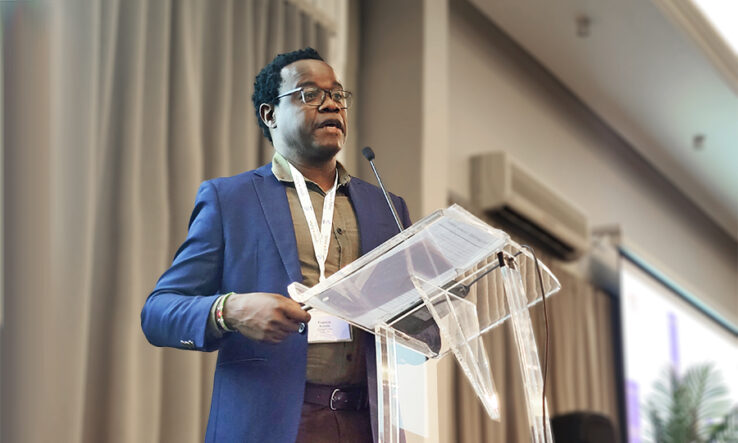Sarima 2025: Online platform RHInnO reports dramatic efficiency gains after artificial intelligence integration
Artificial intelligence is slashing the time it takes African committees to review clinical trial protocols, the Southern African Research and Innovation Management Association conference in Stellenbosch heard on 4 September.
Francis Kombe (pictured), chief executive of EthiXPERT, a South Africa-registered non-profit company that supports research ethics capacity on the continent, said it had enhanced the RHInnO Ethics online review platform, which it co-developed, with AI earlier this year to support administrators and reviewers.
Early results suggest a marked improvement in turnaround, he said. Ordinarily, reviews could take six months or more, but with AI support this process has been cut to one to four weeks, he said.

Reducing pressure
More than 30 committees in 10 countries are using RHInnO, which was developed with European partners. It replaces paper and email systems, easing document management and reducing burdens on administrators.
Kombe explained that AI technology can produce concise summaries of lengthy protocols, identify potential risks and benefits, and even suggest possible decisions for consideration. While the final call remains with human reviewers, AI offers structured support throughout the process, he noted.
“The AI also gives power to the administrator once assigned this protocol…it allows the reviewer to accept the suggestions from the AI, to edit, to reject them altogether,” he said.
Positive response
Committees piloting the platform have responded positively, Kombe said. “We have seen a very big increase in terms of speed improvement…people were very fascinated by how the AI was able to make very reasonable suggestions.”
But financial barriers remain, he said. About a dozen African research ethics committees are intermittent users of the platform because they cannot always afford the annual subscription cost.
“Some committees cannot continue once grant funding ends,” Kombe noted. Even so, he argued, the AI-enabled platform could be “pivotal” for accelerating health research while maintaining ethical standards.



